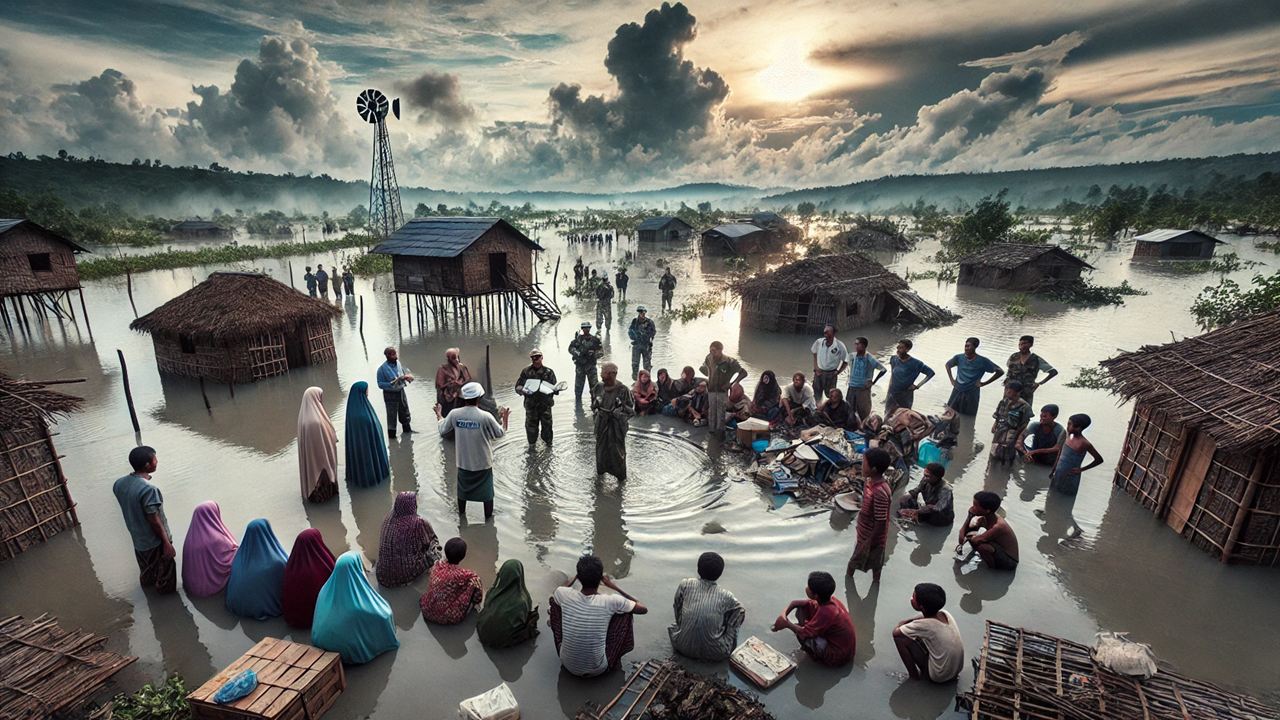Philippines Devastated by Back-to-Back Typhoons, UNICEF Responds to Urgent Water, Sanitation, and Education Needs
Typhoons Kristine and Leon Cause Widespread Damage, Leaving Millions of Families and Children in Dire Need of Support.

The Philippines has been hit by a series of powerful tropical cyclones, including Severe Tropical Storm Kristine (international name: Trami) and Super Typhoon Leon (Kong-rey), resulting in significant devastation across the country. These back-to-back storms have caused widespread damage, leaving millions of people, including 1.3 million children, without access to essential services like safe water and sanitation. Classes have been disrupted for 20 million learners, and over 300,000 people have been displaced from their homes.
The storms, which are the 11th and 12th tropical cyclones to strike the country this year, affected 13 regions and 29 provinces, with the Bicol Region, particularly Camarines Sur and Albay, bearing the brunt of the impact. As the situation worsens with the onset of Tropical Storms Marce (Yinxing) and Nika (Toraji), and the formation of a new weather system, Ofel (Man-Yi), the Philippine government has ramped up its emergency response efforts.
Emergency Response Efforts and Immediate Assistance
UNICEF Philippines, along with its partners, has been providing urgent support to affected communities. Oyunsaikhan Dendevnorov, UNICEF Philippines Representative, emphasized the importance of lifesaving supplies during and after a crisis. “We are working with our partners to provide water, sanitation, and hygiene supplies to affected families and children to prevent the spread of diseases,” Dendevnorov said.
Before the typhoons, many affected communities had already faced challenges in accessing basic water and sanitation services. The storms have worsened these conditions, leading to reports of open defecation and heightened risks of waterborne diseases. In response, UNICEF and its partners have delivered 2,950 hygiene and water kits to families in the hardest-hit provinces of Camarines Sur and Albay in the Bicol Region. This is part of a larger plan to reach 3,300 families, with an additional 350 hygiene kits and water kits set to be distributed in the coming days.
Support for Education Amid Disruption
In addition to its efforts to address water and sanitation needs, UNICEF is working to ensure that children’s education continues without disruption. The Department of Education estimates that at least 500 schools in the Bicol Region need assistance, with many institutions damaged or repurposed as evacuation centers.
To support 14,594 learners and 765 teachers in 25 schools and five Community Development Centres, UNICEF will distribute essential educational supplies, including 3,261 teacher and student kits, 32 early childhood care and development kits, 38 recreation kits, and 25 School-in-a-Box kits, which contain materials for one teacher and 40 students. This initiative aims to provide children with a stable learning environment, even as many schools are impacted by the storms.
Akihiro Fushimi, UNICEF Philippines Education Chief, emphasized that keeping schools focused on education, rather than evacuation, is critical. “Ensuring that children’s learning is not disrupted is a priority for UNICEF,” Fushimi said. “We urge that schools remain dedicated to education so that children continue to have a stable learning environment during this challenging time.”
Growing Need for Continued Support
The devastating impact of Typhoons Kristine and Leon has made it clear that more assistance is urgently needed in the coming weeks. With more extreme weather events predicted in the region, the response from the Philippine government, international aid organizations, and local partners will be crucial in ensuring that communities receive the necessary support to recover and rebuild their lives.
As the storm season continues to exacerbate the effects of the climate crisis, UNICEF calls for the continued provision of life-saving aid and stresses the importance of maintaining critical services for affected populations, particularly for vulnerable children and families. The combined efforts of humanitarian organizations and local authorities will be essential in mitigating the long-term consequences of these devastating events.
- READ MORE ON:
- UNICEF
- Philippines
- Storm Kristine
- Oyunsaikhan Dendevnorov










